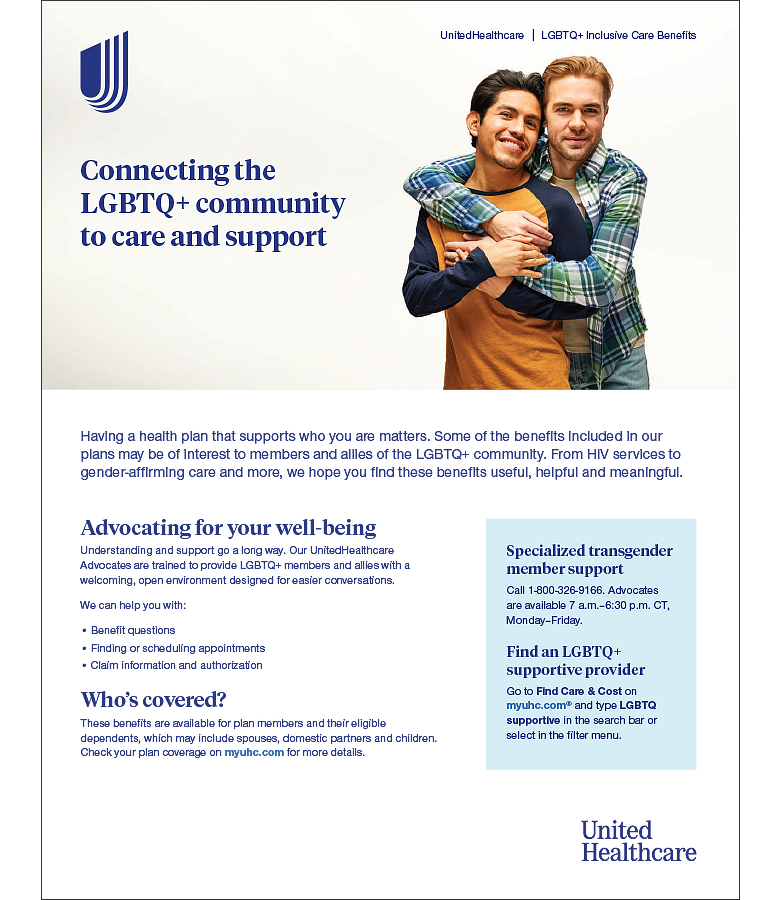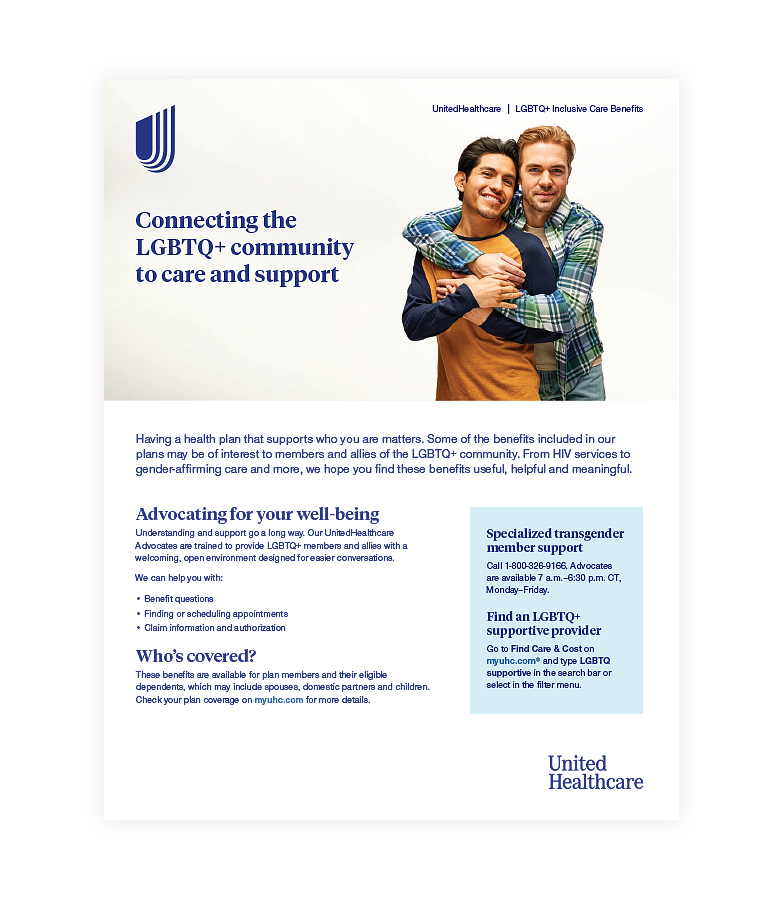Supporting the LGBTQ+ community promotes DEI in the workplace — and may lead to improved health outcomes
Employers who provide a supportive workplace for LGBTQ+ employees may be more successful at recruiting and retaining a diverse workforce.
In the U.S., the number of people who identify as LGBTQ+ — lesbian, gay, bisexual, transgender, queer or other — has increased to 7.2%, up from 5.6% in 2020, with 1 in 5 Generation Z (Gen Z) adults identifying as LGBTQ+.1 With the oldest segment of Gen Z turning 26 in 2023, creating a culture that is welcoming to all has become increasingly important for employers to attract and retain this talent pool.
In fact, employers who provide an LGBTQ+-inclusive workplace experience up to 50% higher LGBTQ+ employee retention and earn higher revenues.2 People want to work where they feel welcome and safe — with 25% of LGBTQ+ individuals reporting that their work environment and the feeling of safety and inclusion keep them at their jobs.2
Employers with a stronger position on diversity, equity and inclusion (DEI) and Environmental, Social and Governance (ESG) often have a more inclusive workplace, which can lead to:3
- Stronger employee morale
- A more positive workplace
- Increased productivity and engagement
- Greater employee loyalty
- A larger talent pool
To create a truly supportive LGBTQ+ work culture, employers can start by actively recruiting and promoting LGBTQ+ talent, embracing inclusive policies and promoting practices such as encouraging employees to add preferred pronouns in their email signature. Furthermore, the development of LGBTQ+ Employee Resource Groups (ERGs) can help build a sense of community in the workplace.
Ensuring health plans meet the needs of LGBTQ+ employees is another step employers can take to demonstrate their commitment to this underserved population.
For instance, LGBTQ+ individuals are 2.5 times more likely to experience depression, anxiety and substance misuse.4 When selecting an employee health plan, employers may be able to address these issues by considering these unique needs of the LGBTQ+ community. By offering an inclusive health plan, employers may be giving themselves an advantage in today’s competitive labor market.
Helping LGBTQ+ employees find supportive care

A holistic approach to health care considers not just coverage, but also helps employees find the care they need and aims to improve their experience as they navigate the health care system.
When it comes to receiving care, 70% of transgender and gender non-conforming respondents and 56% of lesbian, gay or bisexual respondents reported having negative experiences with health care providers.5 In many cases, this can lead to deferring or avoiding health care altogether.
To help ensure providers are equipped to deliver culturally relevant care, Optum — an affiliated company with UnitedHealthcare — launched an accredited, no-cost and publicly available education program for providers to learn more about the unique care needs and disparities faced by the LGBTQ+ population. UnitedHealthcare members can also find LGBTQ+-supportive providers on myuhc.com® by clicking the Find Care & Costs tab and searching for “LGBTQ supportive” or selecting it in the filter menu.
UnitedHealthcare Advocacy solutions is also working to simplify the health care experience and drive better outcomes for LGBTQ+ members. Employees and their covered family members can call the phone number on their member ID card to reach a culturally competent advocate who can help answer questions about benefits and claims, finding providers, clinical support, pharmacy needs and more.
As an extension of the Advocacy program, the Family Engagement Center (FEC) provides employees with access to a specialized team of advocates familiar with LGBTQ+ health needs and gender-affirming care options. Members can connect with a dedicated, 1-on-1 Care Advisor who is specially trained to help employees and their covered family members with administrative support and education on clinical services and policy coverage.
"We’re hearing from the LGBTQ+ community that they want more from their employer benefit plans. That includes access to family planning resources beyond fertility treatments — for example, support for surrogacy and adoption."
Benefits designed to support LGBTQ+ families
Many LGBTQ+ couples grow their families through assisted reproductive technology (ART) and surrogacy, as well as adoption and foster care. These individuals may be seeking support to help cover the costs of bringing a child into their family:6
- Gestational surrogacy: Average cost of $150K
- Domestic adoption: Average cost of $32K
- IVF fertility treatments: Average cost of $5K per cycle
Employers can help offset some of these costs by offering a health plan that includes benefits like a family reimbursement program. Family reimbursement programs provide a set amount to help employees and their covered spouses or partners with eligible expenses related to surrogacy or adoption.
Fertility benefits can also help support LGBTQ+ employees. For example, the UnitedHealthcare Fertility Solutions program offers information and emotional support for prospective parents exploring pregnancy options. The program’s Fertility Center of Excellence (COE) designation guides members to specialists who have demonstrated success in increasing the chance of pregnancy.
Inclusive resources for LGBTQ+ employees
Other ways employers can build an inclusive workforce is by developing a digital toolkit for employees that houses a collection of resources to educate, inform and support LGBTQ+ allies.
Optum’s Pride 365+ is an example of a resource employers can make available to their workforce. The site includes ways colleagues can show support and become an LGBTQ+ ally, links to educational podcasts and articles, and fact sheets to inform about terminology and pronoun best practices.
Strengthening the sense of community among LGBTQ+ employees and their allies can help employers attract and retain talent — and make their organizations stronger overall.
Connecting the LGBTQ+ community to care and support
Having a health plan that supports who you are matters. Some of the benefits included in our plans may be of interest to members and allies of the LGBTQ+ community. From HIV services to gender-affirming care and more, we hope you find these benefits useful, helpful and meaningful.
